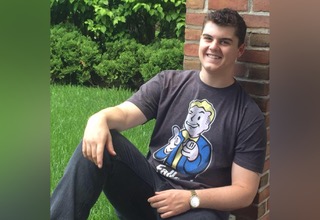On July 15, 2016, (almost two years to the day after I lost my son, Pat), I wrote:
Welcome to my blog. This is my first post. I've included the photo of the killdeer because a killdeer mom gave me courage when I needed it most.
Excerpt from my book, Sooner Than Tomorrow: "This morning I'm heartened on my early walk. The killdeer is back on her nest, in the same brown and gray rocks as before, one block over. No trees shade her. No bushes shield her from predators. She sits on four new eggs -- faithful, vulnerable, determined. 'You inspire me little Mama Bird, and I wish you the best. We mothers have to stick together.'"
Please know that I intend this blog to be about more than just me and my book. I want it to be a safe place for mothers and grandmothers and sisters and daughters — any family member or caregiver really — to tell our stories and to share insights about living our lives to the fullest while we try to help someone we love cope with serious mental illness.
So here we go. Let's see where this takes us. I look forward to hearing from you, hosting our discussions, and posting your stories.
Hope you're having a good week. Dede
Fast forward to today:
Little did I know the journey I was embarking on when I created that post. In the last three-and-a-half years, in addition to my own stories, I’ve posted 161 stories from mothers, fathers, politicians, journalists, and individuals with SMI — including a prisoner in solitary confinement and a woman homeless on the streets of Sacramento. I’ve met quite a few of you in person and come to know many more of you on Facebook. As of December 30, 2019, Sooner Than Tomorrow has reached readers in over 90 countries and has received over 96,000 page views.
The top twelve stories in 2019 are the following:
“I’m Past Anger. I’m in Complete Despair” by Linda Rippee.
“The Failure of Kevin’s Law” by Kimberlee West
“Our Country’s Shame” by Dede Ranahan
“Rewind and Erase” by Linda Rippee
“My Video May Be Difficult to Watch” by Sherri McGimsey
“Just the Beginning of Our Journey With Our Son” by Rebecca Distel Reinig
“Please Help Us Reach the 2020 Presidential Candidates” by Dede Ranahan
(To receive a copy of the 2020 Grassroots 5-Part Plan for SMI Reform, email me: dede@soonerthantomorrow.com)“Please Don’t Kill My Son” by Darlene Been Watkins
“Thank You For All Your Letters to Travis” by Dede Ranahan
“Beyond My Understanding of What Being Human Means” by CJ Hanson
“I See Change Coming” by Channin Henry Williams
“This Is A Moral Moment” by Teresa Pasquini
Thank you to all the 2019 contributors, in addition to those listed above: Viviana Kaeg-Runde, Sarah C., Julie Fast, Lynn Nanos, Tamara Lee, Deborah Harper, Laura Pogliano, Lance Soberg, RNP, Kelli Nidey, SARDAA, Audrey Adams, National Shattering Silence Coalition, Sal Rosselli, Jerri Clark, Ashley Doonan, Cathie Curtis, Stacy Kollias, Sheila Ganz, Sherry Hunter, Allilsa Fernandez, Pamela Armstrong, Angela McCandless, Mary Rossell, Pat Wood Sterling, Gary Warth, Pete Earley, Marcella Brown, Francie Van Zandt, Donna, Ellie Shukert, Leslie Carpenter, Steve Bullock, Marcy Murphy, Kamala Harris, and many Anonymous.
Thank you to all the 2019 readers, those with SMI experience and those newly learning about SMI.
By blog standards, Sooner Than Tomorrow is still a baby blog. That fact, though, doesn’t tell the whole story. I challenge anyone, anywhere, to point to a blog with more heart, more courage, more grief, more resilience, more generosity, or more hope. Your stories come from across our country. When I read them, I’m in the presence of love and strength beyond what any of us thought those attributes would ever require. Your stories make me sad and proud and humbled to be part of our amazing tribe.
May 2020 bring peace and serenity to all of us in the SMI community, and to all those ready and willing to help us fight for comprehensive and compassionate mental illness care.
Love to you, Dede
P.S. Have to include this photo.
Pat, I love you forever. Mom
Sooner Than Tomorrow — A Mother’s Diary About Mental Illness, Family, And Everyday Life by Dede Ranahan
Click here to see Sooner Than Tomorrow on Amazon
For Patrick and his sisters,
Megan, Marisa, and Kerry.
And for the mothers.
Mothers are the people who love us for no good reason.
And those of us who are mothers know
it’s the most exquisite love of all.
—Maggie Gallagher










